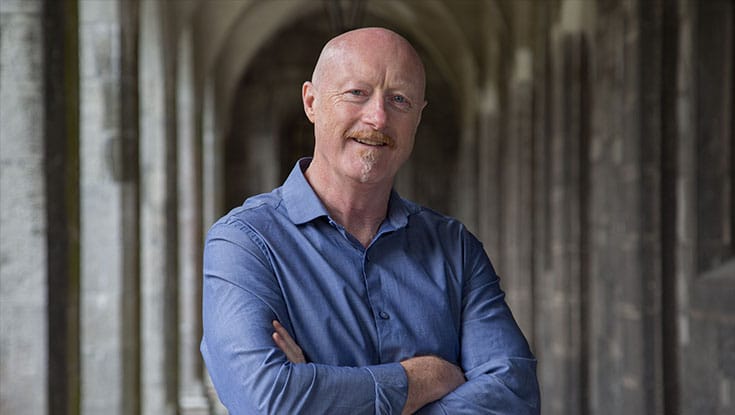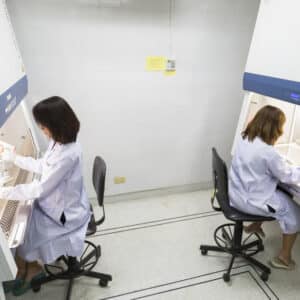Professor John Pius Dalton, a renowned scientist in Infectious Diseases, has joined NUI Galway as Professor of Molecular Parasitology to tackle major parasitic diseases of humans and their livestock. He joins the University through the Science Foundation Ireland (SFI) Research Professorship Programme, which supports national strategic priorities by recruiting world-leading research and leadership talent to Ireland. He will develop a €5 million research project, which will devise an overall strategy for the development of a novel preventative vaccine of parasitic diseases for both humans and animals.
Infectious Diseases Research
Globally, almost two billion people, one-quarter of the world’s population, suffer from parasitic worm diseases. These occur predominantly in low to middle income regions of the world, such as sub-Saharan Africa, Asia, and South America, where households earn less than two dollars a day. Parasitic diseases cause high morbidity, particularly amongst children, and reduce the economic potential of these regions, and compound the health and wellbeing issues related to poverty.
While infections with parasitic worms, such as pin-worm, may have been common in Ireland over 70 years ago, due to better sanitation and control measures these are, thankfully, now infrequent. However, within the agricultural community parasitic worm infections are all too common – think about the annual advertisements on TV that advise farmers to drug-treat their animals to rid them of fluke, lungworm or other parasites! In fact, Irish farmers spend over €90 million per year to protect their sheep, cattle and pigs from such diseases. The emergence of drug-resistance parasites as well as the impacts of climate change on parasite transmission is causing major concern as we are now seeing an increase of livestock parasites in Ireland and across Europe.
Response
Speaking about his new role at NUI Galway, Professor Dalton, says: “To develop new vaccines we need to understand the basic biology of the interaction between the parasite and its host – from this we can devise vaccines to break this relationship and protect the host, and we now have the molecular, bioinformatics and genetic tools to do this, as well as the technology to manufacture vaccines.
“I’m looking forward to developing a world-class Molecular Parasitology research team at NUI Galway and to tapping into the excellent expertise in infectious diseases already established here and nearby at Teagasc, Athenry. This is a perfect research environment to translate our research into real and practical outcomes in veterinary and human medicine, not only for Ireland but also for much less well-off regions in the world.”
Research Goals
Professor Dalton’s research will also develop novel diagnostic tests for parasites to help farmers control and manage infection on the farm to reduce their reliance on chemical treatments. “The ultimate aim is to benefit farmers”, says Professor Dalton, “they need better means of detecting diseases on farms so that they can strategically, rather than randomly, treat their livestock. It saves them money, effort and, in the long term, can help eradicate disease.”
However, there is another edge to this research. Parasites can survive up to 20 years in humans and animals and they do this by manipulating the immune responses of their host. Professor Dalton, explains: “The way parasites have evolved to selectively and effectively control specific arms of the host immune system is fascinating and explains why they are so successful and so widespread. But on the other hand, we can learn lots from them on how to control immune responses.”
Professor Dalton’s team will focus on elucidating how parasites suppress and alter the effectiveness of their host’s immune system and have already discovered various parasite molecules that enter immune cells of the host and silence their normal functions.
Professor Dalton, adds: “The very same molecules can be used to treat disorders of humans whereby the immune system is over-reacting, we call these parasite-design biotherapeutics and we are using them to dampen down destructive immune reactions. For example, a major common component of diseases such as inflammatory bowel diseases, such as ulcerative colitis and Crohn’s disease, Type 1 diabetes, multiple sclerosis, and arthritis is damage caused by our immune system targeting our own tissues. Our experimental research this far indicates that we can use our parasite-designed molecules to silence these auto-reactive responses and possibly come up with new treatments. So our goal at NUI Galway will be to advance our approach to human systems.”
Read more online at NUIGalway.ie.












Comments